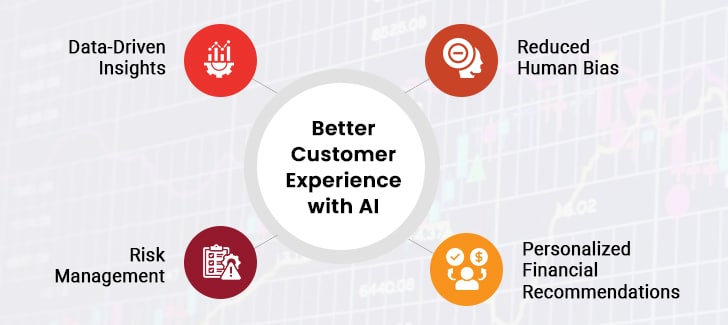The stock market is notorious for its inherent volatility, complexity, and not having a clear trend, making it difficult for traders, investors, hedge fund managers, and portfolio management services (PMS) to face a relentless challenge: predicting the unpredictable. In today’s dynamic and ever-evolving investment landscape, stock prices are hard to predict since they are influenced by several factors, including investors’ sentiment, global economic conditions, politics, unplanned events, companies’ financial performances, and more.
The fearless foray of Artificial Intelligence (AI) in the financial landscape has brought a paradigm shift in the way stock investing and trading is conducted. In other words, AI has emerged as a game-changer in the dynamic realm of finance, revolutionizing the way investors and financial institutions analyze and predict stock market movements. Today, financial institutions and investors don’t need to spend hours conducting fundamental/technical chart analysis or make investment decisions solely on gut instincts, instead, they can use AI-powered tools to navigate the complex landscape of the stock market and improve prediction accuracy.

The desire for using AI to predict stocks is not mere hype, instead, it is backed by tangible results. In fact, AI-powered hedge funds have vastly outperformed traditional investing methods. This clearly indicates that AI is the decisive factor that can make all the difference between seizing an opportunity and missing out on it, in the volatile financial landscape where fortunes are made and lost in mere seconds.
Recent Advancements in AI for Stock Market Prediction
AI provides investors and financial institutions with valuable insights to navigate the complex and dynamic world of finance. Listed below are some of the remarkable advancements in AI for stock market prediction.
1. Natural Language Processing (NLP)
Natural Language Processing has become increasingly important in predicting stock prices. NLP algorithms can extract actionable insights from voluminous data, empowering investors and financial institutions to filter out the noise and focus on critical data points for accurately predicting market movements.
2. Sentiment Analysis
AI-powered systems can analyze news articles, companies’ financial reports, and social media conversations in real-time. This sentiment analysis helps investors and financial institutions to gauge market sentiment and make accurate predictions based on this sentiment analysis.
3. High-Frequency Trading
AI-based high-frequency trading (HFT) emerges as the undisputed champion for accurately predicting stock prices. The AI algorithms execute trades within milliseconds, allowing investors and financial institutions to capitalize on minuscule price discrepancies. The use of AI in stock market trading tools improves their ability to analyze market data and execute trades at lightning-fast speed with better accuracy.
4. Big Data Analytics
The explosion of big data has been instrumental in the evolution of AI in stock trading. AI systems sift through enormous volumes of structured and unstructured data to uncover hidden patterns and correlations that traditional analysis might miss. AI systems in stock market analysis move beyond conventional metrics to provide a more nuanced, multidimensional view of market behavior.
5. Deep Learning Methods
Recent advancements emphasize deep learning methods applied to stock market prediction. AI systems now use deep neural networks and reinforcement learning to continuously improve their performance.
6. Machine Learning Algorithms
ML algorithms can analyze historical data to find patterns in price changes, offering statistical insights on investment decisions, like the probability of success and risk. ML programs revolutionize algorithmic trade through historical data analysis. ML can also automate investment decisions and even create a completely AI-governed stock portfolio.
How to Drive Better Customer Experience With AI
How AI Empowers Investors and Financial Institutions for Stock Market Prediction

I. Data-Driven Insights
Artificial Intelligence offers data-driven insights thereby reducing the dependency on gut feeling or intuition for making investment decisions. This data-driven approach not only improves accuracy but also instills confidence among investors, traders, and financial institutions alike, enabling more informed investment decisions.
II. Risk Management
Artificial Intelligence models can assess and mitigate risks more effectively than traditional investing methods. By meticulously analyzing various risk factors and market conditions in real-time, investors and financial institutions can proactively implement risk management strategies, which in turn, leads to better returns and a risk-proof investment portfolio.
III. Reduced Human Bias
One of the significant advantages of using AI for stock market predictions is its impartiality. AI models are devoid of cognitive biases, human emotions, and other psychological factors providing an objective perspective. Investors, traders, and financial institutions can benefit from objective and rational insights, resulting in optimal investment decisions.
IV. Personalized Financial Recommendations
Artificial Intelligence takes into account individual preferences, financial goals, and risk tolerance to provide hyper-personalized recommendations to investors and financial institutions. The ability to customize investment strategies based on individual investor profiles not only enhances customer experience but also fosters trust and contributes to more informed and successful investment decisions.
How an Asset Management Company Improved User Engagement with Gen AI
Use Cases of AI in the Stock Market
- Technical Analysis: AI-driven algorithms can analyze technical indicators such as Exponential Moving Average (EMA), Relative Strength Index (RSI), Bollinger Bands, Fibonacci Retracement, Stochastic Oscillator, and Average Directional Index to make accurate predictions about future price movements. In other words, AI algorithms can automatically analyze technical charts to identify potential trading opportunities.
- Portfolio Management: AI models can analyze the historical market data and volatility that could affect returns and adjust portfolios in real time to align with changing market conditions. Besides this, AI-driven algorithms improve overall portfolio performance by suggesting diversification strategies to mitigate potential risk.
- Designing Customer Service Bots: The integration of AI in designing custom service bots can assist users with tasks or queries related to stock trading. These AI-powered bots can quickly understand and respond to queries, providing users with the latest stock prices, market trends, and relevant news and perform specific actions automatically such as executing buy and sell orders, notifying users about significant events affecting their holdings, and tracking portfolio performance in real time.
- Algo Trading: AI is used in algo trading, where machines take trades based on pre-configured rules. These AI systems quickly look at market data to find trading opportunities. For example, an AI might see a pattern that shows a stock price will go up and automatically buy it. This helps traders act faster than human traders. Algo trading lowers the chance of mistakes and can lead to better trades by making orders at the right time.
- Stock Screening: AI stock screening tools help investors sort through thousands of stocks based on things like price or dividends. For example, an investor looking for cheap stocks might use an AI tool to scan the market for companies that meet their needs automatically. The tool can quickly analyze lots of data and show the investor a list of possible investments that fit their plan. This saves time and makes it more likely to find good investment chances.
- Risk Management: AI is important for checking and managing investment risks. It can look at different factors that might influence stock prices. For instance, an AI system might see how news about a listed company could affect a portfolio. Using AI helps investors make smart choices and protect themselves from losses.
- Market Monitoring: AI is often used to monitor market behavior and find trading patterns that could hint at stock manipulation. Regulators can use AI to look for unusual activities. This helps them investigate further. For example, if there is a sudden rise in the trading volume of a certain stock, an AI system can flag it for review. This helps keep trading fair and protect traders.
- Customer Support Chatbots: Many brokerage houses use AI chatbots to help clients with questions regarding their accounts. These AI bots give instant responses to questions without any human help. For example, a client might ask a chatbot about their portfolio performance balance and get an instant answer. This makes customer service faster and lets human agents focus on tasks that require human acumen.
10 Best AI Tools for Stock Market Analysis
1. Trade Ideas
Trade Ideas uses machines to help people make better trades. It looks at lots of information very quickly to find good stocks to buy or sell. It’s like having a superfast helper that knows a lot about the stock market. This AI stock trading software has a free version and paid versions with more tools. It helps with real-time alerts to trade opportunities.
Key Features of Trade Ideas
- AI-powered trading signals
- Opportunities for stock trends
- Simplified patterns for easy understanding
- Customizable strategies based on user preferences
2. Tickeron
Tickeron is a tool that uses machines to guess how stocks will perform. It can find patterns and give you ideas for trades. It’s like having a machine that helps you see what might happen in the stock market. This artificial intelligence stock trading software has in-depth stock market insights and is intuitive.
Key Features of Tickeron
- AI-generated trading signals
- Customizable strategies based on user preferences
- Real-time alerts for trading opportunities
- Simplified patterns for easy understanding
3. Kavout
Kavout uses machines to give stock scores. These scores help you decide if a stock is good to buy. It looks at lots of things about a company to give it a score. It’s like having a machine that grades stocks for you. This artificial intelligence stock trading software simplifies portfolio management.
Key Features of Kavout
- Stock scoring system for deeper insights
- Advanced AI models for comprehensive analysis
- Large-scale portfolio management
- Suitable for both short-term and long-term investments
- Simplified portfolio management
4. MetaStock
MetaStock helps people who like to look at stock charts. It can guess what might happen with stocks using computer programs. It’s like having a smart assistant that knows how to read stock charts. This AI stock trading app has an automated data analytical technique.
Key Features of MetaStock
- AI-based automated data analytical techniques Interactive charting and screening features
- Automated alerts
5. Alpaca
Alpaca lets people trade stocks without paying fees. It also has a way for computer programmers to make their own stock tools. It’s like having a free place to trade stocks and build your own tools. With the help of AI, you can customize stock analysis.
Key Features of Alpaca
- API access for personalized trading strategies
- Commission-free trading
- Ideal for developers and custom integrations
6. TradingView
TradingView is a place where people look at stock charts and share ideas. It now has computer programs that can help you make your own trading helpers. It’s like a social network for stock traders with some smart trading tools. This AI stock trading software is effective for both beginners and experts.
Key Features of TradingView
- Deep market screening capabilities
- Advanced chart types
- More than 100 technical indicators
- AI-based custom trading scripts and indicators
- Basic scripting functionality
7. AlgoTrader
AlgoTrader is a tool that helps people trade stocks automatically. It can trade many different things, like stocks and currencies. It’s like having a robot that trades for you. This AI stock trading app offers support for multiple asset classes.
Key Features of AlgoTrader
- Support for multiple asset classes
- High-frequency trading functionality
- Robust backtesting tools
- Sophisticated risk management features
- Extensive customization options
8. Zacks Investment Research
Zacks Investment Research is a company that gives advice on stocks. It uses machines to look at lots of information and make predictions about stocks. It’s like having a team of experts with machines helping you pick stocks. They also provide comprehensive reports.
Key Features of Zacks Investment Research
- Customizable screening and recommendation of stocks through artificial intelligence
- Analyze the aspects of the market and making earnings predictions
- Status of risks and portfolio management instruments
- Earnings Expected Surprise Prediction (ESP)
9. Turing Trader
Turing Trader uses machines to trade stocks for you. It can learn how to trade better over time. It’s like having a smart robot that manages your stocks. This AI stock trading app supports numerous types of assets, such as stocks, options, and futures.
Key Features of Turing Trader
- AI-integrated trading systems
- Stocks, options, and future support
- Risk assessment options
- Portfolio management solutions
- Auto-trading functionality
10. Alpha Vantage
Alpha Vantage helps people get stock market data and use computer programs to understand it. It’s like having a library of stock market information and tools to make sense of it. It also provides an API that can be used with Python, R, and MATLAB for further processing.
Key Features of Alpha Vantage
- Market quote data for different categories of assets
- Additional technical analysis tools to help traders both construct and test strategies using proven algorithms
Summing Up
Artificial Intelligence has become an indispensable ally for investors, traders, and financial institutions to navigate the complexities of the stock market with unmatched precision and confidence. Recent advancements in AI models and algorithms, such as Deep Learning, Natural Language Processing, Reinforcement Learning, Sentiment Analysis, and Quantum Computing have paved the way for more accurate and data-driven investment decisions. As the financial landscape continues to evolve, embracing AI for stock prediction is not merely an option but a strategic imperative for those who want to maximize their returns while mitigating risks. If you also want to build a more resilient investment portfolio with risk-adjusted returns, you may consider using AI to predict stocks with better accuracy. Get in touch with a professional AI development company to build AI-powered tools for forecasting stock market movements.





